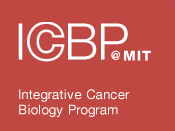| Title | Understanding resistance to combination chemotherapy. |
| Publication Type | Journal Article |
| Year of Publication | 2012 |
| Authors | Pritchard, JR, Lauffenburger, DA, Hemann, MT |
| Journal | Drug Resist Updat |
| Volume | 15 |
| Issue | 5-6 |
| Pagination | 249-57 |
| Date Published | 2012 Oct |
| ISSN | 1532-2084 |
| Keywords | Antineoplastic Combined Chemotherapy Protocols, Computer Simulation, DNA Damage, DNA Mutational Analysis, Drug Resistance, Multiple, Drug Resistance, Neoplasm, Humans, Leukemia, Molecular Targeted Therapy, Signal Transduction |
| Abstract | The current clinical application of combination chemotherapy is guided by a historically successful set of practices that were developed by basic and clinical researchers 50-60 years ago. Thus, in order to understand how emerging approaches to drug development might aid the creation of new therapeutic combinations, it is critical to understand the defining principles underlying classic combination therapy and the original experimental rationales behind them. One such principle is that the use of combination therapies with independent mechanisms of action can minimize the evolution of drug resistance. Another is that in order to kill sufficient cancer cells to cure a patient, multiple drugs must be delivered at their maximum tolerated dose - a condition that allows for enhanced cancer cell killing with manageable toxicity. In light of these models, we aim to explore recent genomic evidence underlying the mechanisms of resistance to the combination regimens constructed on these principles. Interestingly, we find that emerging genomic evidence contradicts some of the rationales of early practitioners in developing commonly used drug regimens. However, we also find that the addition of recent targeted therapies has yet to change the current principles underlying the construction of anti-cancer combinatorial regimens, nor have they made substantial inroads into the treatment of most cancers. We suggest that emerging systems/network biology approaches have an immense opportunity to impact the rational development of successful drug regimens. Specifically, by examining drug combinations in multivariate ways, next generation combination therapies can be constructed with a clear understanding of how mechanisms of resistance to multi-drug regimens differ from single agent resistance. |
| DOI | 10.1016/j.drup.2012.10.003 |
| Alternate Journal | Drug Resist. Updat. |
| PubMed ID | 23164555 |
| Grant List | R01-CA128803-04 / CA / NCI NIH HHS / United States U54-CA112967-06 / CA / NCI NIH HHS / United States |
